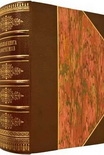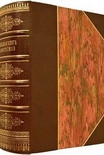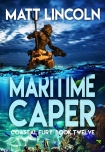The Saboteurs, Clive Cussler [dark academia books to read .txt] 📗

- Author: Clive Cussler
Book online «The Saboteurs, Clive Cussler [dark academia books to read .txt] 📗». Author Clive Cussler
Sam nodded. “Makes sense.”
“Just stand by the phone in your office. I’ll call as soon as I reach Cristóbal and give you the coordinates as best as I can figure.” Bell suddenly remembered something. He handed a note to Sam. “I need you to wire the Van Dorn office with these instructions.”
Sam read the couple lines. “What’s ‘OTJ’?”
“‘On the jump.’ Everyone at Van Dorn knows if I add those letters that it’s a priority job. If the response comes back in the affirmative, you have to prevent President Roosevelt from coming here, even if he is just staying in the Canal Zone.”
“What’s this about?”
“Coincidences are the opportunist’s playground.”
“Huh?”
“Just send it. And mind what I said about Roosevelt.”
Jack Scully finally stopped griping when Bell climbed back into the floating plane and announced he was ready. He wore a pair of motorcycle goggles Sam had borrowed from a company dispatch rider, and he’d worked a pair of Ohropax wax-and-cotton plugs into his ears. While the engine was loud, what he really needed was protection from the pressure of wind shooting into his ears at fifty miles per hour. He knew from experience that it grew painful after only a few minutes.
The mechanic led the draft horse and its winged cargo across the parking lot and down the shallow embankment to the canal’s entrance channel. The day was virtually windless, the water was like glass. The horse had little trouble towing the biplane on its wheeled cart. Without hesitation, Scully entered the water, and the horse plodded along in his wake. The trolley was soon submerged, as the horse dragged it deeper, and all at once the airplane floated free.
Scully turned around to lead the horse back to dry land. Sam took the reins, and Scully returned to the water once more to hand-start the Hall-Scott engine. This time, it fired on the first throw of the prop. Seaplanes don’t have brakes, and this one didn’t have an anchor, so as soon as the engine caught the Fowler-Gage started creeping forward. Jack Scully was forced to dive out of the way of the deadly prop. He came up, sputtering. Bell was already well past him by now, so the mechanic didn’t see the grin on his lips.
With no wind to worry about, Bell opened the throttle to its stops, working the rudder bar with his feet to keep the plane headed in a straight line. He noted it was a little rougher than taking off from an airfield, and its speed built slower, but as he accelerated, the controls began to feel lighter in his hands. The wings were generating lift.
Despite the canal’s calm surface, the ride grew rougher and rougher, and for a moment Bell thought the plane was going to tear itself apart. His hand was just reaching for the throttle to scrap the takeoff when the pontoon lifted clear, and things smoothed instantly. Bell pulled back ever so gently on the stick, and the biplane responded smartly. The nose came up, and he was climbing into the cloudless sky.
He circled back when he reached about five hundred feet to throw a wave at the tiny figures standing at the water’s edge. Sam waved, and Bell threw him a salute. Bell felt no more remorse lying to Sam than when he’d lied to Goethals. It’s why he didn’t talk about his plan within earshot of Jack Scully. The gruff mechanic would have known right away Bell was pulling a fast one because the Fowler-Gage didn’t have anywhere near the range needed to go chasing after the airship.
Bell looked for Scully and saw he was on foot and heading back to the garage with his horse walking with its head down behind him.
Bell turned the aircraft to the northwest—a quirk of the canal is that one travels eastward to get from the Atlantic to the Pacific—and settled for an altitude of about a thousand feet. He could feel the drag the pontoon exerted on the airframe. The nose kept wanting to drop, and that meant he had to keep constant pressure on the stick in order to stay level.
He was soon over the Culebra Cut. Steam and smoke rose from around the excavators, which still looked mammoth even from that altitude. He spotted a steam shovel that was sitting idle and knew it was the one destroyed in the accident.
He got a better sense, from up above, how the sides of the canal were terraced like rice paddies in Asia. Also obvious were the massive landslides that continued to thwart the construction effort. Bell was put in mind of King Canute trying to hold back the tide.
It was only from high up that he got a sense of the scale of the project. The cut stretched for some eight miles and sliced through the heart of the continental divide, laying mountains low as it went. The uncountable tons of rock pulled from it didn’t just leave a scar but also a testament to man’s vision, ingenuity, and tenacity.
He flew over the earthen plug, which prevented the rising waters of Lake Gatun from inundating the work site and the town of Gamboa, and the mighty discharge of the Chagres River, its water the color of milky coffee as the spring floods had not yet abated.
Without warning, the plane plummeted as though the air holding it aloft had dissipated. Bell swallowed the seed of panic and calmly let the nose drop to pick up airspeed. He descended far faster than he’d expected, but, at five hundred feet, he’d dropped below the odd pocket of extreme low pressure. He assumed it had something to do with the Chagres River and how its rapid current slowed when it entered the turgid lake.
Moments later, he was back up to one thousand feet, and the plane was





Comments (0)